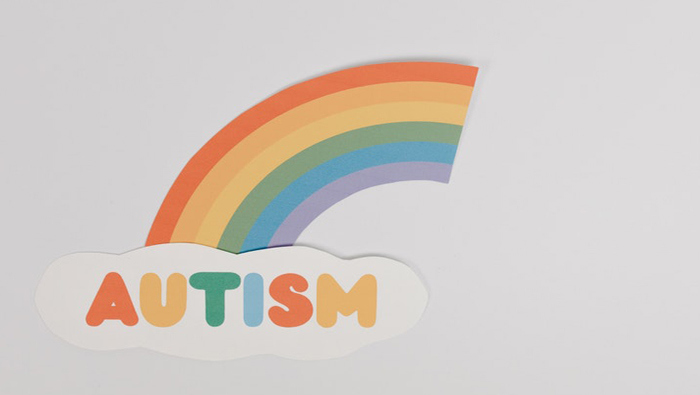
Find out more

Read the article

Find out more

Read the article

Find out more
The student needs to face many upcoming changes, gather new experiences and deal with a variety of challenges. The familiar school-style type of learning becomes replaced by a more dynamic arrangement of study with an aim to broaden one’s knowledge in areas of interest. Classes are held in different locations and the amount of the material to be learnt requires the ability to organise one’s own work. Apart from studying, there is student life, i.e. an entry into a new social environment and the development of new relationships that often become long-term friendships.

Most students consider it exciting and look forward to it. Despite some anxiety about making a step into the unknown and the need to manage so many changes, they feel ready to start a new phase of their lives.
There is, however, a group of young people, for whom this moment of transition may be much more difficult and their adaptation to the new reality may require much more effort.
In recent years an increasing number of young people with autism spectrum disorder has been starting higher education. In general, they have narrow interests and passions, which they wish to pursue at university level. For them, further education is an opportunity to grow, but it can also be a major challenge.
According to the most recent data, 1 out of 100 people are currently diagnosed with autism spectrum disorder. The diagnosis is generally made in childhood, four times more often in boys than in girls. Autism spectrum disorder does not go away with time - it accompanies the person throughout his or her entire life. With high probability, it can be said that everyone knows someone who experiences difficulties because of ASD. Perhaps a person next to us overreacts to sounds? Does he or she like the usual routine and find it hard to accept change? Does his or her behaviour seem eccentric? Is he or she able to focus on details or does he or she have a unique hobby and is very passionate about it?
People experiencing difficulties in relation to autism spectrum disorder have a specific pattern of functioning in three areas:
Specific sensory sensitivity is also frequent - in some areas it may be excessive (e.g. the slightest sounds will be perceived as strongly disturbing), in others - reduced.
In recent years the way of understanding this type of disorders has changed. The terms ‘autism’ and ‘Asperger syndrome’ used so far have been replaced by ‘autism spectrum disorder’. This makes it possible to place the difficulties experienced on a certain continuum, depending on the degree of intensity. At one end of the spectrum, there are people who experience significant difficulties in functioning and at the other, those who function relatively independently and require little help (high-functioning ASD).
One of the remarkable characteristic of autism spectrum disorder is the interlacing of deficits and talents.
Many neurotypical people may find it difficult to pay attention to detail and concentrate on monotonous and repetitive tasks, which are the skills that come very naturally to people with ASD. These abilities can be accompanied by high intelligence, developed analytical skills, and a good - often photographic - memory. Most people with autism spectrum disorder have narrow, specialist interests within which they can accumulate extensive knowledge. Some of them manifest savant skills - outstanding abilities in a particular subject - most often in music, art, or mathematical operations.
Many changes and the necessity to adapt to a new environment can render the so-far successful strategies employed by young people with autism spectrum disorder insufficient, while developing new ones is time-consuming. Finding your way in a specific university structure, organising your own learning and coping with stress can be problematic. Research indicates that students with ASD often experience difficulties in communicating with their
peers - in terms of making and maintaining new friends (which can cause feelings of isolation or inadequacy) as well as during group work in class.
The specific difficulties of people with autism spectrum disorder will make it challenging for them to start a new phase in their lives. Experiencing this change by individuals will be different for each of them, and will depend on individual conditions - strengths and weaknesses, needs and sources of support.
What all people with autism spectrum disorder (as well as neurotypical students) share in the process of adapting to a new environment is the desire to be treated with openness, understanding and acceptance of who they are, rather than being judged as ‘weird, abnormal, disordered’. So, if you notice another person next to you who behaves differently than you, approach them with friendliness as they may be trying to adapt to the academic reality to the best of their ability and positive support may give them courage in this process.
Attwood, T., The Complete Guide to Asperger’s Syndrome. Jessica Kingsley Publishers, 2008
Gurbuz, E., Hanley, M., Riby, D.M., University Students with Autism: The Social and Academic Experiences of University in the UK. Journal of Autism and Developmental Disorders (2019) 49:617–631
Merino, M., Lancho, M. Garcia, Ch., Supporting students on the autism spectrum throughout their university studies. Projekt Autism & Uni.
Morgan, H. Adults with Autism: A Guide to Theory and Practice. Cambridge University Press. 1996.
Pisula, E., Autyzm. Od badań mózgu do praktyki psychologicznej. GWP, Gdańsk, 2012
Płatos, M. (ed.) Ogólnopolski spis autyzmu. Sytuacja młodzieży i dorosłych z autyzmem w Polsce. Warszawa, 2016
Prokopiak, A. (ed.) Osoby ze spektrum autyzmu w biegu życia. Wydawnictwo UMCS, Lublin, 2020
Magdalena Niedbał – psychologist and trainer with the experience of work with different groups. She worked as an education advisor at the Jagiellonian University Disability Support Service exploring the area of support for high-functioning students with autism spectrum disorder.
I like
people liked this article